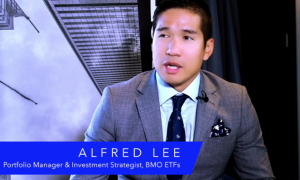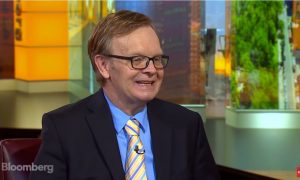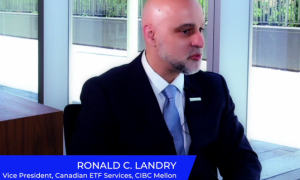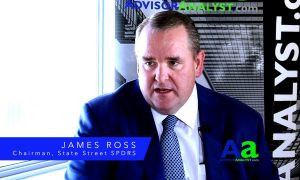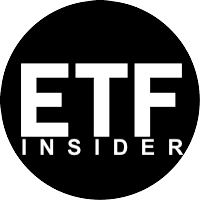by Franklin Templeton Investments blog, Franklin Templeton Investments
As one might imagine in light of recent news, trade was a big topic of discussion at Franklin Templeton’s 2019 Global Investor Forum in San Francisco this week. Our panelists addressed how the uncertainty is impacting the markets today—particularly emerging markets.
In this excerpt from the panel discussion, our Katie Klingensmith talks to Manraj Sekhon, Chief Investment Officer of Franklin Templeton Emerging Markets Equity and Mike Rosborough, Head of International and Emerging Market Fixed Income at California Public Employees’ Retirement System (CalPERS).
Read the Transcript
Katie Klingensmith: The trade conflict—is it really going to derail the economic trajectory that we see now?
Mike Rosborough: They’re playing the game the way they need to play the game. They, both Trump and Xi.
You ratchet up the rhetoric, you ratchet up the penalties and then you both try to find the win-win situation and the compromise, right? And something that saves face on both sides. So, you know, there are these things where you end up with a corner solution and it’s not a good one.
You have to view it in a positive light. Obviously, it creates a lot of market volatility, but at the end, you know, the net gain to everybody by liberalisation has always been there. It’s just where are the gains and losses get distributed because there are always some losers and some winners, but the net benefit is to the greater good.
Katie Klingensmith: Manraj, you are in the region and have done quite a bit of work. Tell us a bit about where you see China.
Manraj Sekhon: I think first of all, in the very short term you have this episode with the US which we think will be an episode and in time will be resolved. Even if it’s not resolved, we believe that the Chinese economy is in a much better place than it was this time last year. And there are a lot more policy tools that they can employ in terms of monetary policy, fiscal policy, reform, stimulus for small- and medium-sized enterprises. So the economy is in a better place to deal with whatever the fallout is from the trade war. But beyond that, what I think this trade war has done, inadvertently or otherwise, is really focused the mind of the Chinese. So over the last nine months, whenever we meet people in China, what’s interesting is we see a different level of focus on reforms.
And what we see in China is probably, I would say, the most sustainable level of balance between the domestic and the external sector. We see the impact of technology. Some of the companies that we look at, I think business models, you will find difficult to see anywhere else. I’m not saying China will not have its share of crises. There will be crises, there are issues they still need to deal with in the financial sector. There’s still issues they need to deal with in the state-run enterprises, in industry. But I would say broadly speaking, given the external threats, given what’s happening domestically, the balance is probably as strong as we’ve ever seen.
To get insights from Franklin Templeton delivered to your inbox, subscribe to the Beyond Bulls & Bears blog.
For timely investing tidbits, follow us on Twitter @FTI_Global and on LinkedIn.
Important Legal Information
The information provided is not a complete analysis of every material fact regarding any country, region, or market. Comments, opinions and analyses contained herein are those of the speaker and are for informational purposes only. Because market and economic conditions are subject to change, comments, opinions and analyses are rendered as of May 15, 2019, and may change without notice. Opinions are intended to provide insight on macroeconomic issues and commentary is not intended as individual investment advice or a recommendation or solicitation to buy, sell or hold any security or to adopt any investment strategy.
Data from third party sources may have been used in the preparation of this material and Franklin Templeton (“FT”) has not independently verified, validated or audited such data. FT accepts no liability whatsoever for any loss arising from use of this information and reliance upon the comments, opinions and analyses in the material is at the sole discretion of the user.
What Are the Risks?
All investments involve risks, including possible loss of principal. The value of investments can go down as well as up, and investors may not get back the full amount invested. Stock prices fluctuate, sometimes rapidly and dramatically, due to factors affecting individual companies, particular industries or sectors, or general market conditions. Special risks are associated with foreign investing, including currency fluctuations, economic instability and political developments. Investments in emerging markets involve heightened risks related to the same factors, in addition to those associated with these markets’ smaller size and lesser liquidity.
Copyright © Franklin Templeton Investments







